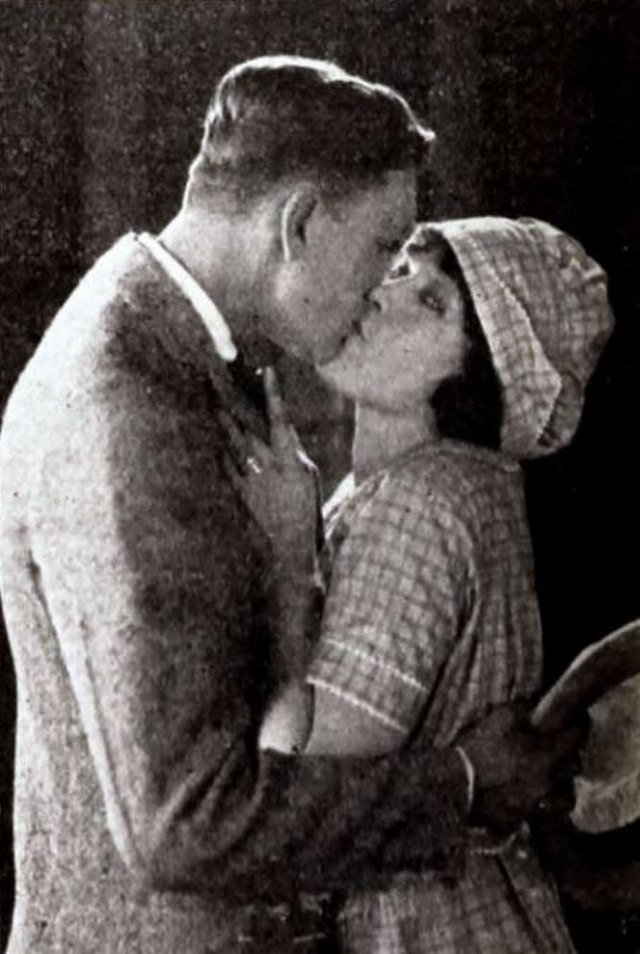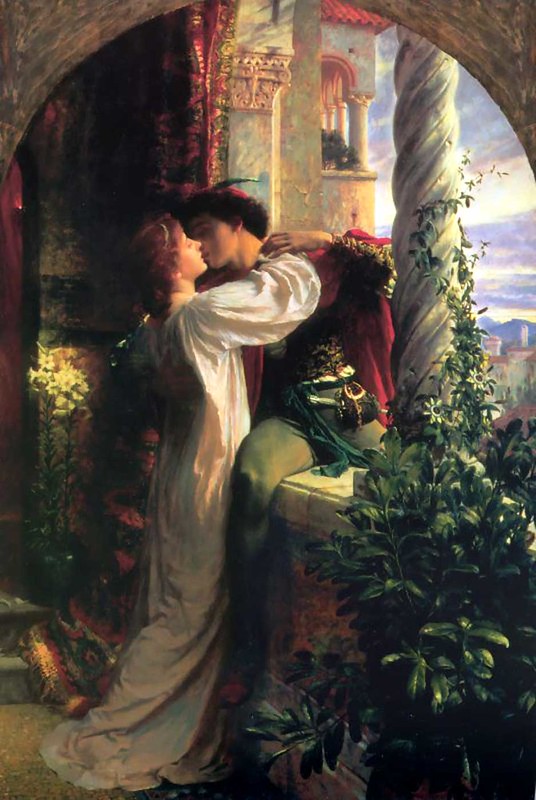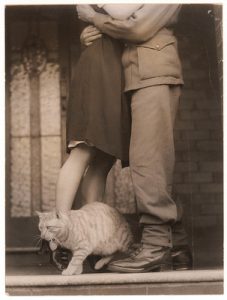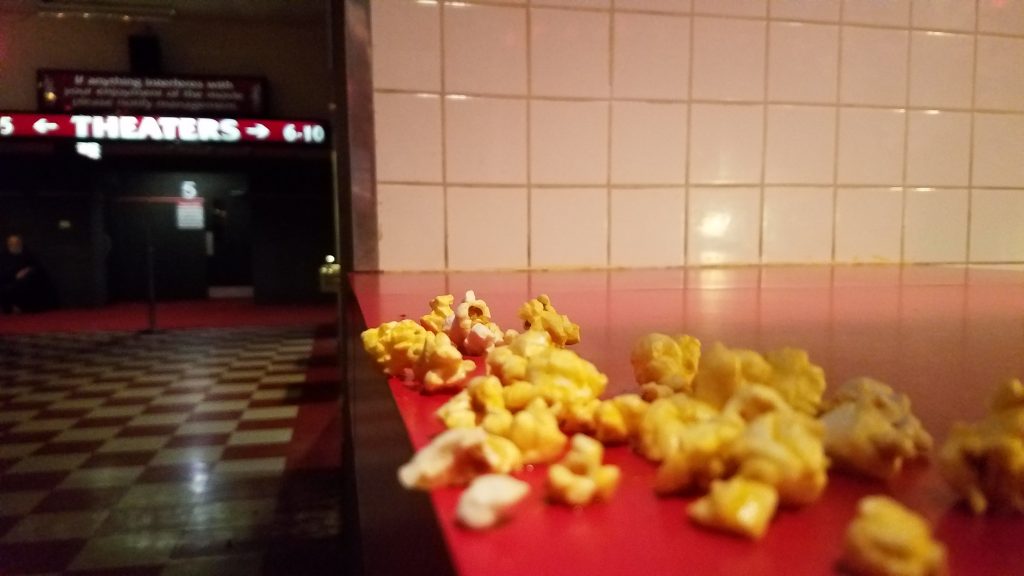Most people don’t closely analyze what type of media they consume. Sure, they’ll look over the summary of a movie or maybe even glance through reviews, but they won’t try to understand how it could impact future choices they make. If you were to explain to them that bingeing romance movies heavily increases their chances of developing certain ideas about what a romantic relationship should be, as well as influencing the type of romantic partner they will want in the future, would they reconsider what they watch?
Younger audiences tend to be influenced by romance portrayed in movies, as most of them haven’t had the time to actually form enough genuine relationships. They tend to idealize certain relationships and use romance that’s portrayed in films and in television shows as a sort of guide for how they should live their lives or what choices they should make.

This type of mirroring behavior is common regardless of the genre of the film, as there has been research conducted about the effects of film on adolescents. “Children’s lifetime superhero exposure may influence children’s risk-taking. Given American children’s substantial media exposure, research should continue to unpack the role of superhero media on children’s unintentional injury and other health risk behaviors.”1
To give an example of this, we have eighteen-year-old Elle Williams who has just started attending college away from her hometown, meaning she doesn’t have her friends around her to make her feel comfortable when she’s attending school, and she has no relatives living near her. She feels alone. All she wants is someone around her who cares. It’s hard living in a cramped dorm with no one to really speak to. All she does is watch movie after movie, barely making any friends as she’s holed up in her room, but can you really blame her? Almost everyone she’s tried to interact with is doing the same thing. Most people just don’t look too excited to have a conversation with a complete stranger. It’s not like Elle was completely friendless; she had a total of two friends that were not from her hometown. While she’s happy to even have any friends in college, she would be lying if she said she wasn’t upset when they couldn’t hang out more often with her. Her friends both had significant others, which meant that they would hang out with them rather than with Elle. While she was obviously happy for her friends, she couldn’t help feeling a tad envious. Elle had never had a serious relationship before. She had small crushes on people every other week, which would usually fade in a few days. Being the single friend really bummed her out; what was it about her that was unappealing? Why couldn’t she be swept off her feet by an attractive person and go on cute dates just like every other person was experiencing?

That was just how her life went. At least, that’s how it went until she met Daniel. Now Daniel was Elle’s dream guy. He was slightly taller than her, usually had a pair of wired earbuds stuck in his ears regardless of whether class was in session or not, and he wore oversized sweaters. Now, this might not seem like the most attractive person in the world, but to Elle, he was. Elle was experiencing the eros style of love, which is one of the six styles of love. She placed him at an “ideal” image of physical beauty, where she’s immediately drawn into him to the point where she disregards any immediate red flags in his behavior. But, to be fair, this is something that is normalized in romantic films, as it’s not revealed until the climax of the movie what someone’s true intentions are, or at least by then the rose-colored glasses come off the main character’s eyes.2
For example, in the movie Clueless, the main character Cher has fallen for a transfer student Christian, who’s unlike any of the boys in her class. She does so much to pursue him, due to her attraction to him, but she doesn’t even see that Christian is just not into her, or any girl for the matter.3
Now the film Romeo & Juliet showcases another big trope, that of love at first sight. One of the main characters, Romeo, goes to a costume party, where he lays eyes on the beautiful Juliet and immediately falls in love with her. This is highly unrealistic; no one actually falls in love with someone that fast; rather, they’re obsessed with the idea of someone.4
The normalization of first love at sight in movies is a very problematical trope, as it’s essentially creating a fantasy of someone you don’t know. This unknowingly influences audiences to create stories about who someone is, rather than actually paying attention to red flags in their behavior. This would ultimately lead to disappointment, as no one can live up to the fantasy that someone has created about him or her. “As the intensity of the longing and the passion felt and why eros disappoints many and drives some to abject despair. But not only is this desired state fleeting at best and unrealistic on the whole, the quest for it also is often self-defeating.”2
From the time they met, Elle and Daniel hung out consecutively for at least four months, where they went on dates and just had fun with each other. Honestly, Elle had been living in this state of euphoria, where everything feels great and nothing could ruin her mood; that is, until one of her friend’s asked if Elle and Daniel were exclusive now. What did that even mean? They hung out with each other almost every other day. Of course they were exclusive; they just hadn’t given it a defining label yet. She had seen enough romance movies to know that everything was fine, and nothing major had happened. She tried to convince herself that their lack of communication wasn’t anything that seriously bothered her; but it really did. “It may be that because the romantic comedy genre attracts a large female audience (Fischoff, Antonio, & Lewis, 1997), filmmakers are intentionally featuring the types of relationships that women want most—those in which both partners discuss the relationship.”6

Elle was now experiencing manic love, where she spends all of her free time obsessing over Daniel, and spends countless hours dwelling on all the things that could go wrong, creating more anxiety for her. She realized that she wanted that label “exclusive.” She needed that sense of security. Now, Elle was hoping for a happy ending with Daniel. However, that’s not how it went. She brought up her concerns to him one day, and he told her he never had any intention to be serious or exclusive with her. That broke her heart, and it seriously messed with her perception of romance for a while. But she had to get over it, at least after a few months of crying and watching more romance movies. People could say that watching so many of these movies is what got her here in the first place, and that statement holds some truth to it. Continuing to watch these films, rather than using other resources to help her redefine her concept of a realistic relationship, just perpetuates the challenge of entering into a meaningful relationship with a significant other.
Being able to recognize that movies can influence her choices in romantic relationships is a good thing. This will allow Elle to have a better view of what she values in a partner, and what’s important to her, rather than simply putting up with ambiguity. And now she’s cautious when she views her romantic partners. She no longer idealizes them, and puts them on a pedestal; rather, she is able to hold them accountable for their actions. Galician (2004), an author of a critical analysis of romantic media, argues that people seek romantic content in the media in order to see relationships that appear to work despite all obstacles. Further, previous work has documented that young people seek out romantic media content in order to learn about relationships.6
It’s important for everyone, especially younger audiences, to realize that the types of films they watch do impact decisions they make and how they may perceive themselves. By acknowledging that movies have this type of influence over the way that people think, it’ll become easier to distinguish fantasy from reality, and possibly save someone from another heartbreak, or help them take that leap of faith when meeting someone new.
- Casie H Morgan, Barbara A Morrongiello, and David C Schwebel, “Short- and Long-Term Effects of Superhero Media on Young Children’s Risk-Taking Behaviors,” Journal of Pediatric Psychology 46, no. 7 (August 2021): 779–89, https://doi.org/10.1093/jpepsy/jsaa133. ↵
- Francis Duffy, “Attraction and Love,” Salem Press Encyclopedia, 2021. ↵
- Amy Heckerling, Clueless, 1995, Paramount Pictures. ↵
- Baz Luhrmann, 1996, Romeo & Juliet, United States: Twentieth Century Fox. ↵
- Francis Duffy, “Attraction and Love,” Salem Press Encyclopedia, 2021. ↵
- Veronica Hefner and Barbara J. Wilson, “From Love at First Sight to Soul Mate: The Influence of Romantic Ideals in Popular Films on Young People’s Beliefs about Relationships,” Communication Monographs 80, no. 2 (June 2013): 150–75, https://doi.org/10.1080/03637751.2013.776697. ↵
- Veronica Hefner and Barbara J. Wilson, “From Love at First Sight to Soul Mate: The Influence of Romantic Ideals in Popular Films on Young People’s Beliefs about Relationships,” Communication Monographs 80, no. 2 (June 2013): 150–75, https://doi.org/10.1080/03637751.2013.776697. ↵



78 comments
Kelly Arevalo
Interesting article! I think you nailed your topic because it is true that nowadays people are easily influenced by the media, and not only what they purposely search for. There is just so much information nowadays coming from everywhere all the time leaving young people little time to analyze or distinguish between imagination, ideals, and reality. And, they are exposed to different types of content from so early in their lives, that it would be unrealistic to expect them to have criteria to be conscious of what they are consuming.
Ana Barrientos
I enjoyed reading this article, it was very well written. I do agree, I think movies can definitely have an impact on someone especially on how they view love. I think people are romanticizing toxic characters from movies and they want that kind of love, or they romanticize certain celebrities who have toxic relationships. I think toxicity is so romanticized in this generation, everyone wants to be known as crazy and controlling. Overall, great article!
Virginia Alonso
Living in the present 21st century, this article calls my attention back to how our perceptions of a fictional reality can at times completely take over how it is we live our own life . On the topic of romance, one might imagine the song Sway by Michael Bublé playing in the background of fantasized dream-like tangos even today’s popular culture likes seeing as the definition to the ideal romantic life. In reality , most of us fall into this media trap or we keep sprawling into illusions until it can become impossible for us to tell reality from replication . It is the question the title poses that really asks us as the viewers and moviegoers in our society to digest what we are exposing ourselves to , because even over time there may be another question even greater we should ask ourselves about our own direction in our lives . With romance : the endless possibility of the beautiful and the tragic we can see at times in the snapshots cinema can’t replace.
Rosa Deyo
What an interesting article. I will say, as an avid romance reader and writer, you’re right that it can affect how people view love. It’s easy to romanticize romance, especially when looking at movies that include countless over-the-top gestures and dramatic confessions. I think as media consumers, we should be cognizant of what we’re watching, and be careful to not let it affect how we view life too much.
Jocelyn Elias
Very interesting article. Although I do not target a specific audience, in general I do agree that people romanticize the feeling of love by watching many films. Many people, especially those who haven’t fallen in love or experienced that feeling, usually seek validation via films, movies, books, etc. This happens because they want to experience love and they want to be treated like people in films, except many forget that those characters are scripted and are mostly made up scenarios that might not actually ever happen in real life. Overall I do believe films/movies influence most people to romanticize love. Great article!
Morgan Cassias
Great article!! This definitely describes how romance movies has influenced our society and especially younger people. I think it’s pretty messed up to have stories that always have happy ending in every story or to have a view on love that to find a guy to love you is easy. To have high expectations for love. I know I’m guilty of it. To think a guy should always open the door for me everywhere I go. To stand in the pouring rain declaring his undying love for me. To receive the world and more. Not many stories about the ugly truth about love or how the girl doesn’t always get the guy. No movie prepared us for the heartbreak, the disappointment about love, and how unlucky you can be in love. Very well written!!
Shecid Sanchez
This article really stood out to me because I am a die hard romance movie fan. Its my favorite type of movies and I never stopped and realize that this could be affecting the way I look at relationships. This made me stop and think that maybe I have been doing the same thing as all these characters in the movie. Now this made me question if watching my favorite type of genre is influencing a large part of my life. The crazy part is that this goes even further than just romance movies it also goes for violent movies, does it affect young people to think that violence is okay?
Victoria Cantu
I loved everything about this article! I completely agree, I believe that movies often influence younger girls that love at first sight is a real thing. In this article, I found the idea of one being obsessed with the illusion of being with someone that could blind them from the true colors they hold really interesting. I also really enjoyed the story of the college girl as it is very accurate. Overall, I found this article really helpful especially for younger audiences. Excellent work!
Laura Poole
I think many people like to focus on more negative aspects of media like violence that other things like the perception of romance is often overlooked. I think many people in this generation have trouble loving others in a healthy way because of what is displayed in movies and shows. The common trope of a girl lusting after a guy can make girls feel that they must be that way too.
Jace Nicolet
This article is very well written and I can tell by the combination of real life stories, many scores, and storytelling that can get you hooked on this article. This article points out the confusion people have when they grow up only to realize their life is not like a love movie, or give children a vision of how their love life will play out only for it to not go so perfect.